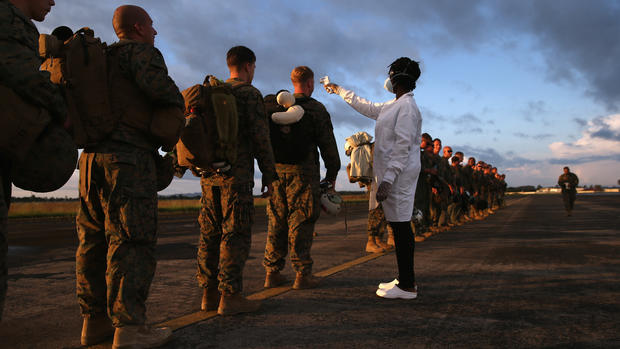New Ebola centers in Liberia could triple capacity
International efforts to curb the spread of Ebola could start paying off.
Liberia's poor health system and a lack of beds have up until now been hampering efforts to contain the spread of Ebola. But as CBS News contributor Debora Patta reports, new treatment centers are being built which could triple the capacity to deal with the disease.
Construction continues around the clock in Monrovia, Liberia. CBS News toured the first of 17 planned Ebola treatment units that the U.S. military is building across the country.
U.S. Ambassador to Liberia Deborah Malac said they wanted to build a place where people felt comfortable enough to bring their loved ones.
"We are still encountering some denial. We still have some work that we need to do in that regard. But I think people are starting to understand that they need to protect themselves, they need to protect their families," Malac said. "The big constraint has been until the last few weeks is the absence of places to take those sick people."
The center could be ready within days and will have 150 patient beds.
West Africa continues to reel from the devastation of the Ebola virus, where the Centers for Disease Control and Prevention reports about 8,400 cases of infection. The virus has led to more than 4,000 deaths, and that number is expected to climb.
The international health agency Doctors Without Borders has been in Liberia for months and operates five large Ebola centers, with a total of 502 isolation beds.
Laurence Sailly is one of the group's emergency response coordinators. She agreed help was needed months ago, and while grateful it is on the horizon, it is nowhere near enough to contain the epidemic.
"We need more people to work in the isolation centers," Sailly said. "It is not enough to have empty structures, we need to have people to manage those structures. What will take time is to train the staff that will be working in the center."
The message in Monrovia is slowly starting to get across that behavioral change and proper sanitation are crucial to fighting this disease. It is difficult to enter a building in the capital city without having to wash your hands in chlorinated water and have your temperature taken. But Doctors Without Borders remain convinced that the death toll is much higher than the statistics show as people are still not reporting all cases of Ebola.
